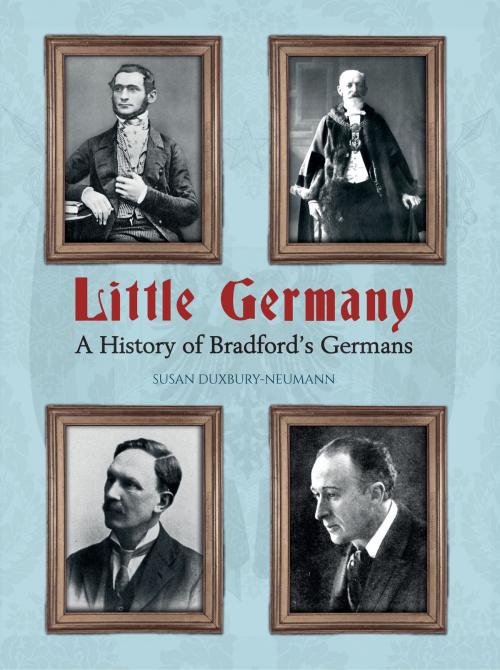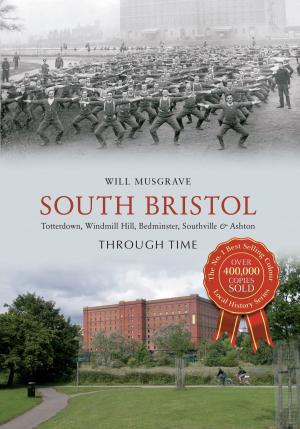Little Germany
A History of Bradford's Germans
Nonfiction, Art & Architecture, General Art, Graphic Art & Design, History| Author: | Susan Duxbury-Neumann | ISBN: | 9781445649634 |
| Publisher: | Amberley Publishing | Publication: | September 15, 2015 |
| Imprint: | Amberley Publishing | Language: | English |
| Author: | Susan Duxbury-Neumann |
| ISBN: | 9781445649634 |
| Publisher: | Amberley Publishing |
| Publication: | September 15, 2015 |
| Imprint: | Amberley Publishing |
| Language: | English |
Little Germany takes us back to the nineteenth century, when Bradford, West Yorkshire, was the wool capital of the world. Over the centuries, Germany and Great Britain have been close trading partners. When Bradford became renowned for its rapidly expanding textile trade, prosperous German wool merchants entered the country and many of them settled in Bradford. These men, comparatively few in number but with great determination, influenced Bradford’s markets with their knowledge of commerce and philanthropic culture. They were merchants who left their mark, men who built the palatial warehouses in Little Germany. At the beginning of the Industrial Revolution and throughout the nineteenth century, cottage industries had given way to industrialisation and factories replaced traditional production. Bradford grew from a country market town into an industrial city, with smoke-blackened buildings and a polluted landscape. It was a city of great wealth against abject poverty and slums. Workers came to Bradford in their thousands, attracted by the prospect of work. German pork butchers from Hohenlohe in south Germany settled in the industrial cities of Great Britain. Their cheap and tasty ‘take-away’ meals were popular with factory workers, who had no time to cook due to long working hours.
Little Germany takes us back to the nineteenth century, when Bradford, West Yorkshire, was the wool capital of the world. Over the centuries, Germany and Great Britain have been close trading partners. When Bradford became renowned for its rapidly expanding textile trade, prosperous German wool merchants entered the country and many of them settled in Bradford. These men, comparatively few in number but with great determination, influenced Bradford’s markets with their knowledge of commerce and philanthropic culture. They were merchants who left their mark, men who built the palatial warehouses in Little Germany. At the beginning of the Industrial Revolution and throughout the nineteenth century, cottage industries had given way to industrialisation and factories replaced traditional production. Bradford grew from a country market town into an industrial city, with smoke-blackened buildings and a polluted landscape. It was a city of great wealth against abject poverty and slums. Workers came to Bradford in their thousands, attracted by the prospect of work. German pork butchers from Hohenlohe in south Germany settled in the industrial cities of Great Britain. Their cheap and tasty ‘take-away’ meals were popular with factory workers, who had no time to cook due to long working hours.















